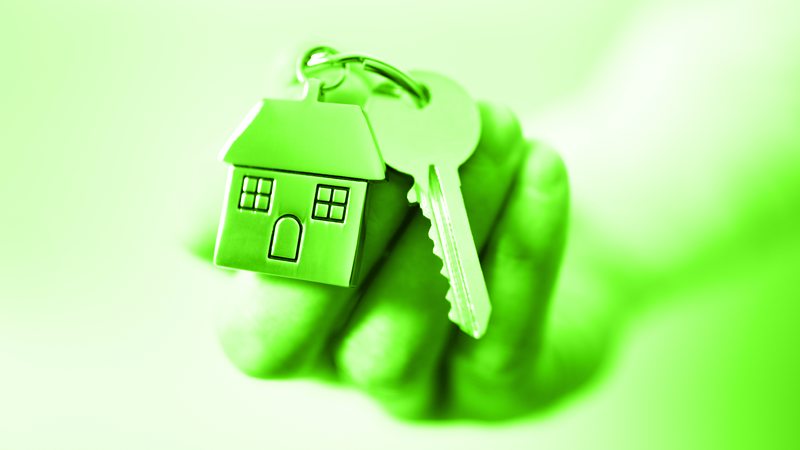All mortgages are not created equal, and if you have savings in your account, an offset mortgage can help you reduce the amount of interest you pay.
Read on to find out everything you need to know about offset mortgages and what to consider for the best offset mortgages in the UK.
What Are Offset Mortgages?
Offset mortgages are mortgages where your mortgage account is linked to your savings or current account.
The savings in the account are then used in reducing or ‘offsetting’ the size of your outstanding home loan on which you pay interest.
The lender deducts the savings in your account from the outstanding mortgage balance, and you only pay interest on the remaining amount.
You pay less interest on the mortgage than if your savings weren’t considered.
The higher the credit balance in your savings or current account, the lower your debt since the balance offsets the debt, and you only pay interest on the difference.
How Do Offset Mortgages Work?
Offset mortgages allow you to reduce the interest you pay on a mortgage.
For example, if your mortgage is £120,000 and you have £30,000 in a linked account, you would only pay interest on £90,000.
If the interest rate is 3.5%, then you pay £3,150 in interest annually on £90,000 instead of £4,200 on £120,000.
The savings are not used to pay off the mortgage, and they don’t reduce your loan amount. Your savings only help reduce how much interest you’re charged on the mortgage.
You can still access your savings and withdraw and deposit money, but you won’t earn interest on the savings in the linked account.
However, if the balance goes up or down, it affects how much interest you’re charged.
If the balance goes down, the mortgage payment increases because there’s a lower amount to offset.
If there’s no money in your offset savings account, you won’t get any offset benefit.
Is An Offset Mortgage Right for You?
Offset mortgages can help you slash the amount of interest you pay and help you pay off your mortgage early, but they’re not for everyone.
A traditional repayment mortgage is a better fit if you’re a basic taxpayer with a regular salary and limited savings.
Offset mortgages are more suited for you if:
- You have decent savings, and you don’t rely on them to supplement your monthly income.
- Your savings earn less interest than you would save by offsetting them against your mortgage.
- You’re not reliant on the interest earned on your savings account.
- You’re an additional or higher rate taxpayer who pays income tax on savings interest.
- Instead of gifting money to your child, you want to link your savings to your child’s mortgage with a family offset account.
Individual circumstances will ultimately influence whether an offset mortgage is suitable for you.
Lenders will assess your finances and whether the mortgage will be affordable for you now and in the future. They’ll look at things like your income and outgoings and the size of your loan.
When making your decision, you need to ensure you’ll make the best out of it to get the best deal overall.
Benefits Of Offset Mortgages
- Pay less overall interest on your mortgage for significant interest savings over the loan term.
- Lower payments each month with a payment reduction offset since you’re charged less interest.
- Choose to make overpayments where you pay the same amount each month and pay off your mortgage early with term reduction offsets.
- There is no tax to pay on savings interest because your linked account won’t earn interest.
- You can access your savings whenever you like if you wish to draw on them.
Drawbacks Of Offset Mortgages
- Even with the cheapest offset mortgage, the interest rates may be higher than standard mortgages.
- You must be confident you can leave your savings untouched to reap full benefits. There is a high temptation to dip into your savings because there’s no penalty, and if you do, the balance reduces, and interest goes up.
- Limited choice. Fewer lenders offer these products, and you may have less choice of deals and providers than with standard mortgages.
- You may need a lower loan to value (LTV) ratio than standard mortgages with equity or deposits of at least 25%.
- Your mortgage and the linked savings account will need to be from the same lender or provider.
- Some lenders require a minimum balance that you have to maintain in the account, meaning you can’t always get all your savings if you need them.
- It’s only good if you’re in it for the long term. You must stick with an offset mortgage for most of the mortgage term to significantly lower your monthly payments or pay it off sooner.
Difference Between Offsetting And Overpaying
Overpaying refers to paying more than the amount set out in your contract. When you overpay on a standard mortgage, you can’t dip into those funds unless you can remortgage.
Most mortgages allow you to overpay by up to 10% monthly, and you can be penalized if you exceed that threshold.
With offsetting your savings, don’t pay off what you owe. They only sit alongside your mortgage and reduce the interest you pay.
If you pay more into your linked savings account, it reduces how much interest you’re charged, reducing the overall mortgage debt.
Any repayments you make cut deeper into the loan and reduce the mortgage term, similar to penalty-free mortgage overpayments.
Things To Consider
You may find a few differences between lenders who offer offset mortgages. A few things you should consider when taking out offset mortgages include:
- How many accounts you can link to your mortgage
- Whether or not the lender accepts savings from a family member to offset the mortgage
- The access you have to your savings if you need them
- The type of offset mortgage benefits you get. They can include term reduction, payment reduction, or both.
Final Thoughts
You can get offset mortgages for purchases or remortgages, and they’re excellent if you have significant savings and require a mortgage.
They’re also suitable if you wish to overpay and still access the overpayments over time.
Call us today on 01925 906 210 or contact us. One of our advisors can talk through all of your options with you.

















